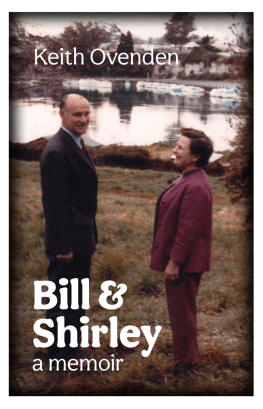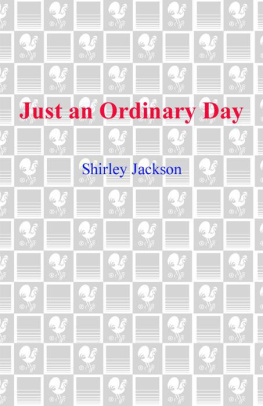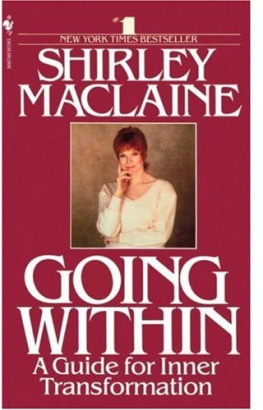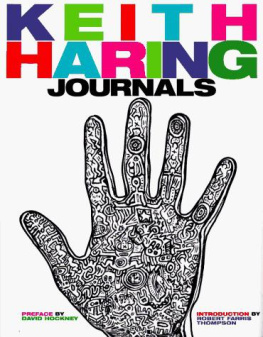Keith Ovenden - Bill and Shirley
Here you can read online Keith Ovenden - Bill and Shirley full text of the book (entire story) in english for free. Download pdf and epub, get meaning, cover and reviews about this ebook. year: 2020, publisher: Massey University Press, genre: Art. Description of the work, (preface) as well as reviews are available. Best literature library LitArk.com created for fans of good reading and offers a wide selection of genres:
Romance novel
Science fiction
Adventure
Detective
Science
History
Home and family
Prose
Art
Politics
Computer
Non-fiction
Religion
Business
Children
Humor
Choose a favorite category and find really read worthwhile books. Enjoy immersion in the world of imagination, feel the emotions of the characters or learn something new for yourself, make an fascinating discovery.
- Book:Bill and Shirley
- Author:
- Publisher:Massey University Press
- Genre:
- Year:2020
- Rating:4 / 5
- Favourites:Add to favourites
- Your mark:
- 80
- 1
- 2
- 3
- 4
- 5
Bill and Shirley: summary, description and annotation
We offer to read an annotation, description, summary or preface (depends on what the author of the book "Bill and Shirley" wrote himself). If you haven't found the necessary information about the book — write in the comments, we will try to find it.
Bill and Shirley — read online for free the complete book (whole text) full work
Below is the text of the book, divided by pages. System saving the place of the last page read, allows you to conveniently read the book "Bill and Shirley" online for free, without having to search again every time where you left off. Put a bookmark, and you can go to the page where you finished reading at any time.
Font size:
Interval:
Bookmark:
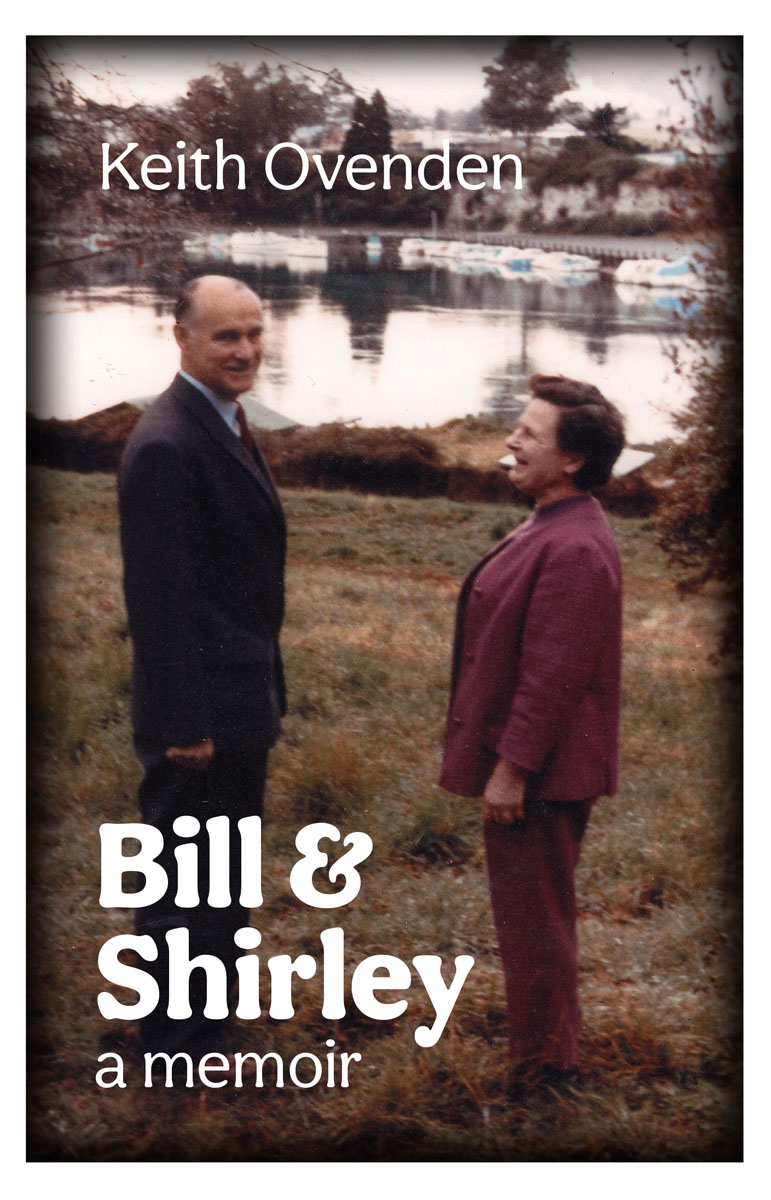

For Alastair Bisley & Lydia Wevers In friendship
I doubt if anything is really irrelevant. Everything that happens is intrinsically like the man it happens to.
Maurice Spandrell in Aldous Huxleys
Point Counter Point
This is a memoir of my parents-in-law, Bill Sutch and Shirley Smith.
I met my wife, Helen, their only child, when we were both graduate students at Oxford in 1967, and we were married in the Wellington registry office, suitably located in Anvil House, in late October 1971. There is no point in pretending that, as far as family relations were concerned, it didnt start badly. Shirley was deeply opposed to the marriage, and did everything she could to prevent it. Prohibition being impossible Helen was nearly 26 years old and persuasion ineffective, she implied some sort of rejection, thus launching a period of coarse adjustment to which we felt obliged to conform.
Despite the unprepossessing start, this is not a confessional text, but it is worth mentioning that I found all of this hard to understand. My credentials as suitor and husband didnt strike either Helen or me as all that bad. The support we received from Bill and Shirleys friends, as well as our own, suggested that they shared our point of view. But of course, as both Helen and I eventually came to see, as in all such matters of the heart and psyche, the situation its effects and its consequences were not really about us. They were about them.
Circumstances really do alter cases, and they do so under times piercing arrow. I knew Bill only for the last four years of his life, but they were years of high incident and drama, both public and private, and ones in which his general orientation to the world suffered a savage reversal. In the spring of 1974, at the age of 67, he was charged with an offence under the Official Secrets Act which, were he to be found guilty, would surely condemn him to prison for the rest of his life. The case dominated the ever-excitable press, which was hardly surprising given the circumstances of his arrest, when he was apparently set to meet a Russian Embassy official on a city street on a dark night in heavy rain. Spielberg could hardly have set it up better. Speculation both before and after the trial, along with deeply hostile commentary from some quarters, threatened to destroy a reputation that had been built over a lifetime of prominence in and devotion to his home country.
By the time of his death in September 1975 he was a man badly in need of sympathetic loyalty. Nor did his life, as is generally the case with public figures trapped in controversies outside their control, cease after his death. Because Helen and I have had his presence in our own lives ever since, this memoir embraces elements that may look rather too much like biography: the subject is there, but he is long since dead. It is not my purpose, as others have felt so free to do, to root among his remains.
So I must say straight away that this makes no pretence of being a biography. It is, rather, an account of my own evolving understanding of the man, an understanding grounded not only in my direct experience of him in those last few years of his life, but also in the contents of his bookshelves, the items and objects in which he delighted, the memories of him that people occasionally confided to me, and the apparently endless streams of public and private commentary about him. Though frequently active in journalism and broadcasting in the 1970s, and again in the second half of the 1980s, I never contributed to any of the public commentary about Bill, but I have made it my business over the years to take the pulse of public response to his name and reputation.
What I have gained from this is reflected in what I have written. You surely do not have to reflect for long either on the course of Bills treatment in the media, or on the enterprise of memoir writing, to see that it could hardly have been otherwise. I make no claims to biographical thoroughness. I have not read his voluminous papers, which are in the Alexander Turnbull Library. I have not read the many letters that he wrote either to his daughter or to his wife. I have not conducted interviews, systematic or otherwise, with the hundreds of people who knew him. This is a memoir, a special class of remembrance.
The position with Shirley is rather different. I knew her from a first meeting in 1970, when she visited Oxford, until her death at the end of 2007; rather longer even than she had known her husband, whom she had probably first met in 1941. Throughout those years our relationship evolved through more phases than the moon, driven first from hostility into familial intimacy by our children, her grandchildren, and then cemented into mutual respect through the life that Helen and I lived together, the books that I wrote (and she read), her gradually changing view of the world and eventually by her deep regret for much that she found troubling in her past. If only, if only she would say. Her final years were spoiled by slowly encroaching indications of dementia, then wrecked by a disabling stroke, but before this first stroke and its successors, she committed some aspects of this regret to paper in a series of autobiographical sketches about her childhood, her life at Oxford in the 1930s, her marriage to Bill, her struggles in the law. In a sense she wrote them for Helen and me, and she certainly wanted me to read them, but though I have relied on them a little here, I do not quote from them. Many of the sketches were written when she stayed with us in Poland one summer at the very end of the last century, under very special circumstances. We had become friends long since, but it was an unusual sort of friendship. I have painted it in colours that I hope capture its unique qualities.
T he one confession I do make is that these memoirs have been committed to paper towards the end of my own life simply because I feel the need to clear my mind about them. Both Bill and Shirley were extraordinary people whom it was a privilege to have known. That our earliest encounters caused me significant pain is of small importance compared with the great profit that I derived from their encouragement and friendship. I had learned much earlier in my life that it is neither necessary nor desirable to be liked by everyone. Something that, quite possibly, Bill never learned. The virtue of patience, however, is that it can bring other and far greater rewards than the satisfaction it is so often said to provide in itself.
Some balance has to be sought in any memoir: a balance between the self and its private preoccupations at the time of writing, and the self in the world at some other, earlier times; between home and society as they were then as opposed to now; between intimates, acquaintances and strangers in an ever-shifting world of memory and deeds; between factual and reputational information about others that we have now as well as then. It can be a difficult experience to confront ones own past errors and ignorance, but the recompense of understanding far outweighs the costs, and may lead to real if limited enlightenment. It is in response to these reflections that I have appended to this memoir a short resum of my views on biography, which I believe also attach to memoirs.
Helen has read this work with her customary dispassionate and loving attention. I would not have sought publication without her agreement, but the fact of its appearance in print does not signify her endorsement of either my memory or my interpretation. This is my memoir, not hers.
Next pageFont size:
Interval:
Bookmark:
Similar books «Bill and Shirley»
Look at similar books to Bill and Shirley. We have selected literature similar in name and meaning in the hope of providing readers with more options to find new, interesting, not yet read works.
Discussion, reviews of the book Bill and Shirley and just readers' own opinions. Leave your comments, write what you think about the work, its meaning or the main characters. Specify what exactly you liked and what you didn't like, and why you think so.

